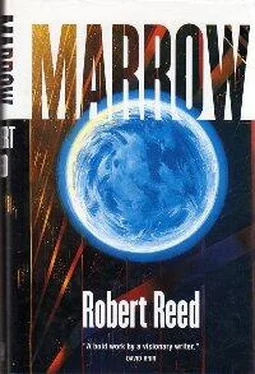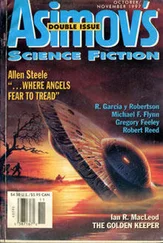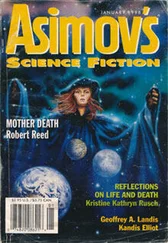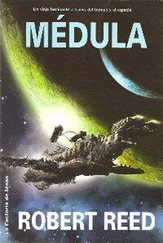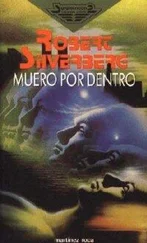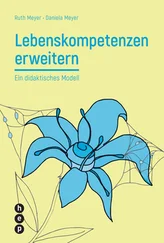Robert Reed - Marrow
Здесь есть возможность читать онлайн «Robert Reed - Marrow» весь текст электронной книги совершенно бесплатно (целиком полную версию без сокращений). В некоторых случаях можно слушать аудио, скачать через торрент в формате fb2 и присутствует краткое содержание. Год выпуска: 2000, ISBN: 2000, Издательство: Tor Books, Жанр: Фантастика и фэнтези, на английском языке. Описание произведения, (предисловие) а так же отзывы посетителей доступны на портале библиотеки ЛибКат.
- Название:Marrow
- Автор:
- Издательство:Tor Books
- Жанр:
- Год:2000
- ISBN:0-312-86801-4
- Рейтинг книги:5 / 5. Голосов: 1
-
Избранное:Добавить в избранное
- Отзывы:
-
Ваша оценка:
- 100
- 1
- 2
- 3
- 4
- 5
Marrow: краткое содержание, описание и аннотация
Предлагаем к чтению аннотацию, описание, краткое содержание или предисловие (зависит от того, что написал сам автор книги «Marrow»). Если вы не нашли необходимую информацию о книге — напишите в комментариях, мы постараемся отыскать её.
Marrow — читать онлайн бесплатно полную книгу (весь текст) целиком
Ниже представлен текст книги, разбитый по страницам. Система сохранения места последней прочитанной страницы, позволяет с удобством читать онлайн бесплатно книгу «Marrow», без необходимости каждый раз заново искать на чём Вы остановились. Поставьте закладку, и сможете в любой момент перейти на страницу, на которой закончили чтение.
Интервал:
Закладка:
“You scare me, Lord!”
“When does this show end, Mother? I am hungry!”
Washen strangled a laugh. Then after her own quick breaths, she admitted,’It has been forever since I last threw anyone off the ship!
Other captains did the banishing. In humane ways, naturally. Taxis or other starships would take the troublesome species home again, or more likely, to obscure worlds where they had a better than fair chance of survival.
“But make no mistake!’ she roared. “I love this ship. 1 was born here, and I will die here, and in the long time between I will do whatever I can to protect its ancient halls and noble stone, from anything or anyone that shows it less than perfect respect. Do you understand me, you little fools?”
“Yes, Your Lord.”
“Your Goddess!”
“But is she finished yet? My tongues are numb from hunger!”
“I am nearly finished,” she told the aliens. Then even louder, she said,” But I will be watching. From this moment, I am hovering over you like Phantom Night.”
That brought a respectful silence.
Phantom Night was a Flounder god, the name translated into a rugged little squawk that brought a chill even to Washen’s spine.
With a practiced haughtiness, she turned and strode away.
The quintessential captain. One of the lords of the galaxy.
And now, for this blunt moment, she was a mythical monster who would steal the souls of those who dared sleep.
long ago, Washen reached that age where the past is too large to embrace, where even the sharpest, most efficient memory has to slough off little details and entire centuries, and where even the most cherished childhood has been stripped down, nothing left but a series of fragmentary recollections and a few diamond-hard moments that no amount of time, not even ten million years, can dilute to any degree.
Washen’s first aliens were dubbed the Phoenixes.
That was when the ship was still outside the Milky Way. Washen was more a child than not, and her parents—engineers who had come on board the first starship—were part of the large unhappy team who fashioned a habitat for the Phoenixes.
Those aliens were unwelcome. They had tried to conquer the ship, after all. It was an ineffectual invasion, but people found it difficult to forgive them anyway. Washen’s father, usually charitable to a fault, openly stated that his work was a waste, and worse, it was a crime. “Give the shits a tiny catacomb, enough water and some minimal food, then forget they’re there. That’s my little opinion.”
Washen couldn’t recall her mother’s precise opinion; even Washen’s own early biases were lost to time. And she couldn’t recall why she first visited the prison. Was she looking for her parents? Or was it later, after their work was finished, and youngsters like herself were pulled there by simple curiosity?
Whatever the reason, what she remembered today was the funeral.
Washen had never seen Death. In her short happy life, not one human had died on board the ship. Age and disease had been tamed, and the modern body could absorb even horrific injuries. If a person was cautious, and sober, she didn’t need to die. Ever.
But Phoenixes embraced a different set of beliefs. They evolved on a small hot world. Gills augmented a trio of large, black-blooded lungs; their metabolisms were quick and fierce. Where most winged aliens were gliders or soarers, passive and efficient, the Phoenixes were the ecological equivalent of human-sized peregrines. Skilled hunters and determined warriors, they possessed a broad heritage older than any human culture. Yet despite a wealth of advanced technologies, they didn’t approve of the immortalities that most species simply took for granted.
Inside a human mouth, their name was an unsingable string of notes.
“Phoenix’ was pulled from some ancient Earth myth. Or was it a Martian myth? Either way, the name was only partly appropriate. They weren’t birds, after all, and they didn’t live for five hundred years. Thirty standards was too long for most of them, physical infirmities and senility leaving their elderly incapable of flight, or song, or the smallest dignity.
Upon death, the body and a ceremonial nest were burned. But instead of a sweet resurrection, the cold white ashes were carried high by family and friends, then released, winds and wingbeats spreading the soft remains to the ends of their enormous and lovely prison cell.
Their home wasn’t built out of simple charity. The Master, taking her usual long aim, decided that if the ship was to attract alien passengers, her crew needed to know how to tweak and twist the ship’s environmental controls, turning raw cavities into abodes where any sort of biology would feel at home. That’s why she ordered her top engineers to make the attempt. And aeons later, when she came to understand the Master, Washen easily imagined the woman’s impatience with someone like her father -a talented employee who dared grumble about his job, unable to appreciate the long-term benefits of this apparently misplaced beneficence.
The Phoenix habitat was once someone’s magnetic bottle.
It could have been an antimatter containment tank, though at its best this remark was an authoritative, utterly wild guess.
Five kilometers in diameter and better than twenty kilometers deep, the prison was a column of dense warm air punctuated by thick clouds and masses of floating vegetation. Biological stocks from the Phoenix starship had been cultured, then adapted. Since the original tank lacked lights, ship-style sky lamps were built from scratch, their light tuned to the proper frequencies. Since there wasn’t room for jet streams or typhoons, the air was assaulted with an array of hidden vents and other engineering tricks. And to hide the tall cylindrical walls, an illusion of endless clouds covered every surface—an illusion good enough to seem real to humans, but not to the Phoenixes who flew too close.
The prison was meant to hold the defeated and the evil, but both sorts of prisoners quickly grew old and passed away.
It was one of the old warriors whose funeral Washen saw. It seemed unlikely today, but she could remember standing on a platform built against that great round wall, herself and a thousand other humans with their hands locked on the railing, watching winged shapes rising toward them, then higher, flying with a wondrous precision and singing loudly enough to be heard over the constant whis-de of wind.
When the ashes were dropped, the bereaved were too distant to be seen.
Intentionally, no doubt.
The young Washen contemplated the funeral. That next day, or perhaps next year, she proposed, “We can let the rest of them go free, since the bad ones have died.”
Her father felt otherwise.
“If you haven’t noticed, Phoenixes aren’t human.” He warned his soft-hearted daughter, “The creatures have a saying. ‘You inherit your direction before your wings.’ Which means, dearest, that the children and grandchildren are just as determined to slaughter us as their ancestors ever were.”
“If not more determined,” said Mother, with an unexpectedly dark tone.
“These creatures hold a grudge,” Father continued. “Believe me, they can make their hatreds fester and grow.”
“Unlike humans,” said their sharp-witted daughter.
Her irony went unmentioned, and perhaps unrecognized.
If there was more to that argument, it went unremembered. The modern brain is dense and extraordinarily durable—a composite of bioceramics and superconducting proteins and ancient fats and quantum microtubules. But like any reasonable brain, it has to simplify whatever it learns. It straightens. It streamlines. Instinct and habit are its allies, and even the wisest soul employs the art of extrapolation.
Читать дальшеИнтервал:
Закладка:
Похожие книги на «Marrow»
Представляем Вашему вниманию похожие книги на «Marrow» списком для выбора. Мы отобрали схожую по названию и смыслу литературу в надежде предоставить читателям больше вариантов отыскать новые, интересные, ещё непрочитанные произведения.
Обсуждение, отзывы о книге «Marrow» и просто собственные мнения читателей. Оставьте ваши комментарии, напишите, что Вы думаете о произведении, его смысле или главных героях. Укажите что конкретно понравилось, а что нет, и почему Вы так считаете.
